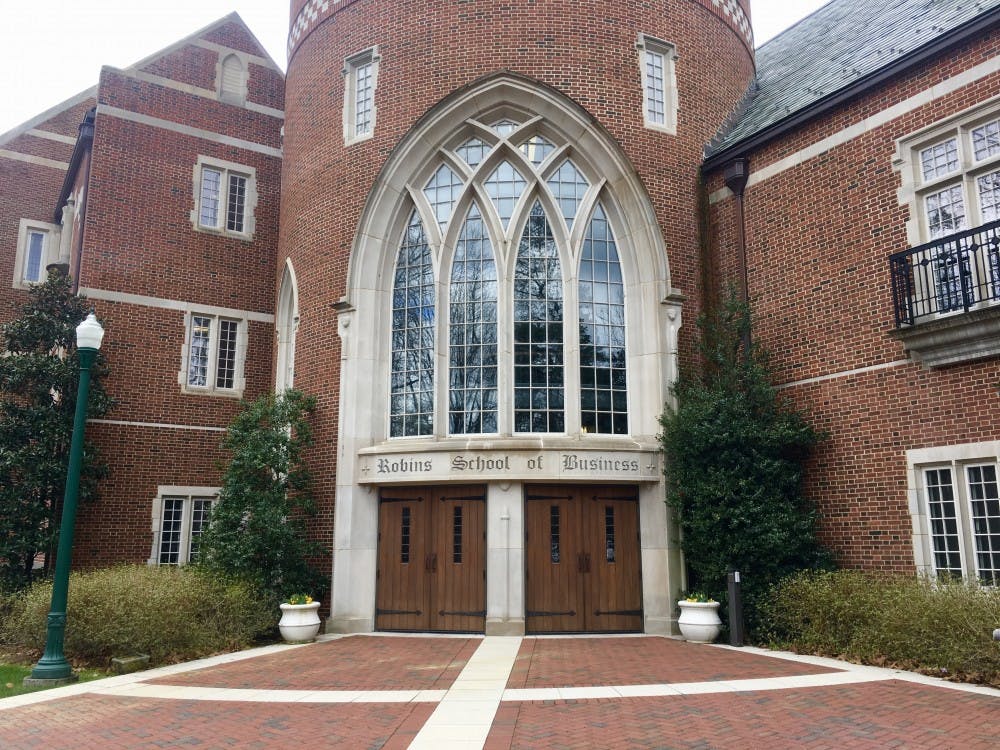The Economic Outlook Survey of the first quarter in 2020 revealed the most drastic change of CEO expectations and sentiment in the survey's 10-year history.
The Economic Outlook Survey is conducted by the E. Claiborne Robins School of Business and the Virginia Council of CEOs. The survey, conducted from March 18-23, showed results with overwhelming pessimism from CEOs about business prospects in the next six months. Approximately 87.1% of CEOs surveyed expected sales to decrease compared with 6.9% who expected an increase and 5.9% who expected no change, according to the survey.
Additionally, 54% of CEOs expected employment to decrease in the next six months and only 6% expected an increase, according to the survey; 40% expected no difference. As for capital spending, 82% expected a decrease, 4% expected an increase and 14% expected no changes, according to the survey.
“I had a visceral reaction,” said Randy Raggio, an associate dean in the business school who conducts the survey every three months. “It was just emotional to see that there was not a single question that we asked [regarding plans or optimism for the future] that more than 7% said something good. I mean, 93% at least said, 'This is going to be bad.'”
Raggio had to change the scale of his graph to include such a severe drop, he said.
Business optimism evident in the previous quarter disappeared because of the COVID-19 pandemic, said Raggio and Scot McRoberts, executive director of the Virginia Council of CEOs.
The survey included questions relating to the COVID-19 pandemic that has disrupted and closed many businesses. McRoberts said hospitality and retail businesses had been hit the hardest.
The survey focuses on small and mid-sized local businesses. The surveyed businesses this quarter averaged 57 employees and $11 million in revenue, McRoberts said. There were 101 businesses that participated in the survey, the highest response rate to date.
“I think in times of crisis, people like to do what might be called sense-making, so you get a sense of ‘How does everybody else see this situation?’" said Mickey Quinones, Robins School of Business dean and professor of management. "There’s a certain degree of comfort knowing that we’re all experiencing the same thing, and we’re all seeing the same thing.”
Beyond the impact on business, both Raggio and Quinones underlined the importance of the survey to students who are trying to understand the broader implications of the COVID-19 outbreak.
“It’s not just economics; it’s health, it’s public policy, it’s safety and [welfare]," Raggio said. "There are a lot of companies that are making significant sacrifices.”
Raggio said the survey had provided a more balanced view of business sentiment by including what small and mid-sized business CEOs are thinking, beyond focusing on the stock market and major headlines.
Enjoy what you're reading?
Signup for our newsletter
When asked how state and the federal governments could help, CEOs said that they would need tax relief and either low-interest or no-interest loans to stay in business and keep their employees, according to the survey responses, Raggio said.
CEOs aren't concerned about productivity and profits as much during this time as being able to pay their employees, Raggio said. The importance of keeping employees isn’t only personal: Retaining employees makes it easier to get back to full capacity after restrictions are lifted, Raggio said.
“So anything, whether it’s a loan, whether it is payment forgiveness, whether it is grant money …. Those are the things they’re looking for,” Raggio said.
Another issue is the amount of investment owners put into their businesses, Raggio said, as many investment owners took out loans to pay for facilities and equipment. The cash flow, once sufficient to cover these costs, is no longer coming in. Raggio also noted the ripple effects of small-businesses potentially closing, as their closures would not only impact those employed and their families but also the businesses' suppliers.
The Virginia Council of CEOs is still connecting CEOs with resources to help them learn and grow but has pivoted to doing so online, McRoberts said.
Both McRoberts and Raggio encouraged community members to spend their money on local businesses and services, if possible.
The Virginia Council of CEOs represents one organization that allows the business school to connect with a variety of local businesses, Quinones said. As an importer of talent, the Robins school can offer its students and faculty expertise to local businesses, which employ many UR graduates, Quinones said.
“I think our success and our impact is very much dependent on the success of the economy of the region, and so we have a stake in the success of the region," Quinones said. "We care about these businesses and their well being.”
Contact newsletter director Eileen Pomeroy at eileen.pomeroy@richmond.edu.
Support independent student media
You can make a tax-deductible donation by clicking the button below, which takes you to our secure PayPal account. The page is set up to receive contributions in whatever amount you designate. We look forward to using the money we raise to further our mission of providing honest and accurate information to students, faculty, staff, alumni and others in the general public.
Donate Now



